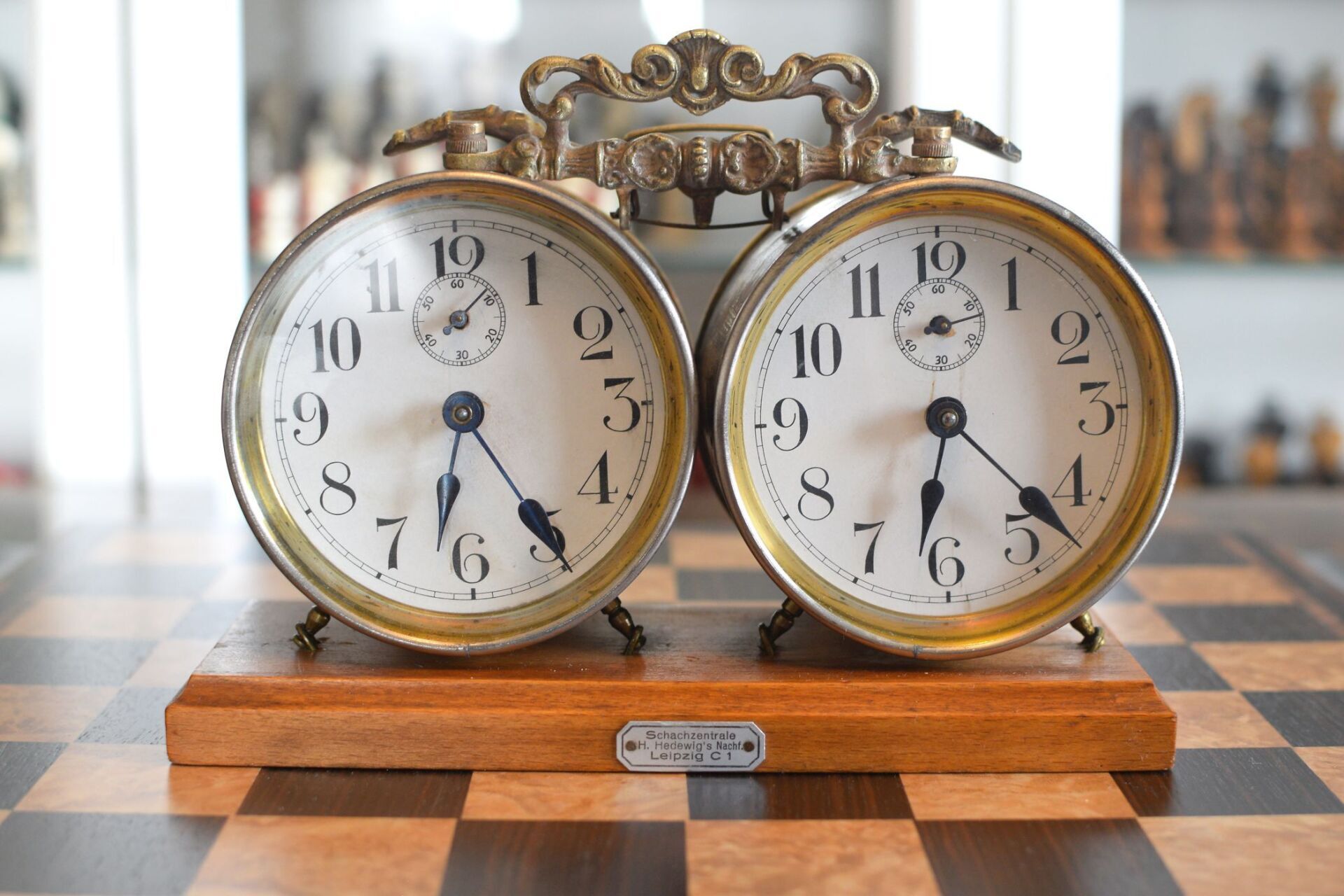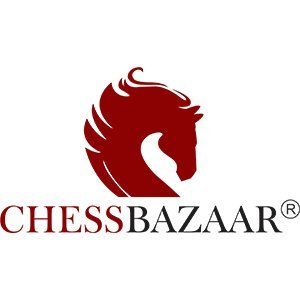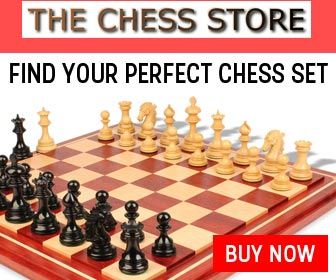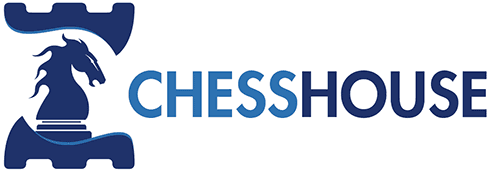German "Bundesform" Chess Set (Hedewig's), 1935-1945
German "Bundesform" set, similar to the one distributed by Habera (German "Bundesform" Set (Habera), 1935-1945). However, this similar set was distributed by the other and much more renowned distributor of such sets, Hans Hedewig's Nachfolger Curt Ronninger. It can still be seen by the remains of the respective label on the inside of the lid.
Curt Ronniger was managing director and owner of the most important German chess trade between 1880 and 1945, and was the official distributor of the playing equipment of the German Chess Federation. Officially, from 1900 to 1958 the shop was called "Hans Hedewig's Nachfolger Curt Ronniger", with "Nachfolger" meaning "successor", so there was apparently once a business owner named Hans Hedewig, but little to nothing is known about him. Curt Ronniger managed the business for more than 30 years. The last managing director Carl Löffler died in 1958 in Leipzig shortly before the Chess Olympiad. The business was taken over by the Handelsorganisation (HO), a trade organisation established by the government of the German Democratic Republic, and thus expropriated and operated from that point on under the name "Schachladen Leipzig" (chess store Leipzig).
The position shown in the last pictures is taken from a chess match between Alexander Alekhin and Klaus Junge in Prague 1942. It was the last round and Junge was leading with 8.5 points and one full point ahead of Alekhin, so Alekhin desperately had to win the game. One of the spectators in the room was the young Ludek Pachman, who later described the tense atmosphere in the room in one of his book as follows:
"Facing each other at the chess table were world champion Alekhin and the 19-year-old German champion Klaus Junge. Alekhin's stories I had heard from the past and present were not very flattering. He drank a lot, was incompatible, annoyed, tormented the organizers in every tournament, and harshly scoffed at the audience. His opponent was a slender, tall boy with sincere eyes, a chess player who at the age of 19 had reached a higher level of play than many of today's grandmasters. A very modest and respectable boy. There was no doubt on whose side under normal circumstances the sympathies of the public would have been. But the conditions were not normal. Our country had been occupied for four years. My brother had been in the concentration camp for more than three years, and I had the Gestapo's remand behind me. For more than four hours I looked at the slender boy, the sympathy of the chess player drew me to him, and I knew that I could not like him as a representative of a certain system. Such feelings dominated the vast majority of viewers, and they found their feet on a rather naïve variety of Pan-Slavism: Alekhine was not only the famous world champion to us, he was a Slav above all, and we were prepared to forget that he enjoyed the special sympathy of the rulers of Europe."
The position shown in the following pictures is taken from a chess match between Alexander Alekhin and Klaus Junge in Prague 1942. It was the last round and Junge was leading with 8.5 points and one full point ahead of Alekhin, so Alekhin desperately had to win the game. One of the spectators in the room was the young Ludek Pachman, who later described the tense atmosphere in the room in one of his book as follows:
"Facing each other at the chess table were world champion Alekhin and the 19-year-old German champion Klaus Junge. Alekhin's stories I had heard from the past and present were not very flattering. He drank a lot, was incompatible, annoyed, tormented the organizers in every tournament, and harshly scoffed at the audience. His opponent was a slender, tall boy with sincere eyes, a chess player who at the age of 19 had reached a higher level of play than many of today's grandmasters. A very modest and respectable boy. There was no doubt on whose side under normal circumstances the sympathies of the public would have been. But the conditions were not normal. Our country had been occupied for four years. My brother had been in the concentration camp for more than three years, and I had the Gestapo's remand behind me. For more than four hours I looked at the slender boy, the sympathy of the chess player drew me to him, and I knew that I could not like him as a representative of a certain system. Such feelings dominated the vast majority of viewers, and they found their feet on a rather naïve variety of Pan-Slavism: Alekhine was not only the famous world champion to us, he was a Slav above all, and we were prepared to forget that he enjoyed the special sympathy of the rulers of Europe."
I actually have with me the original of a fax dated 4 August 1994 sent by Ludek Pachman to the editors of the German "Schach" magazine. In this fax he refers to an article written by Reinhart Fuchs in which Fuchs calls Alekhin's participation in tournaments organised in wartimes as his "tragic role". Pachman expressly mentions the above game between Alekhin and Junge in Prague, which he observed in 1942, and tries to rehabilitate Alekhin in saying that his collaboration was grossly exaggerated by his competitors, like Max Euwe, after the war.
Alekhine was playing white and the position shown is the position after the 11th move of white, when Alekhin boldly played a4, sacrificing the pawn. Alekhin later described his decision as follows: "With this, white continues to carry out his plan. The fact that this happens at the expense of a pawn does not affect him in the slightest, since firstly white, from a positional standpoint, receives the bishop's pair, weak white fields, and a free a-file. Secondly, from a psychological point of view, it was not incorrect to give the opponent in this decisive game the idea of robbery. The disturbance of the material balance consequently leads to a disturbance of the mental balance of the happy owner of the prey."
















